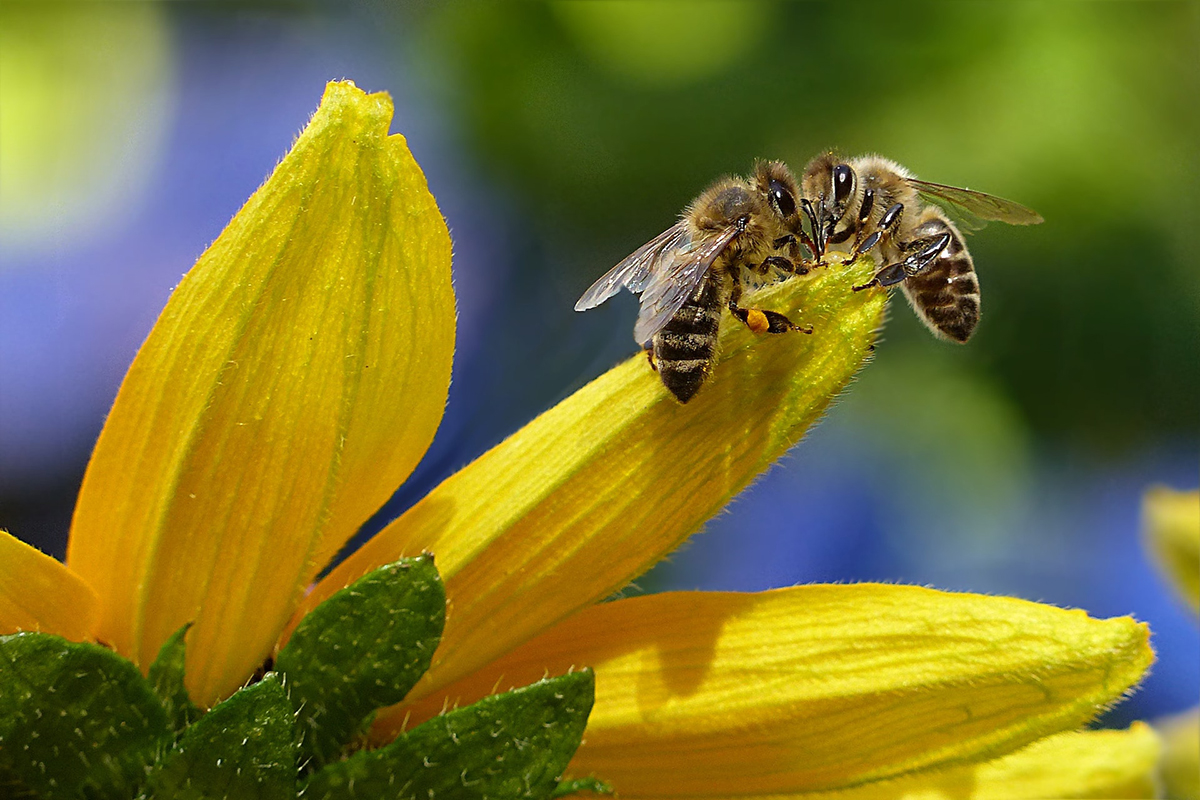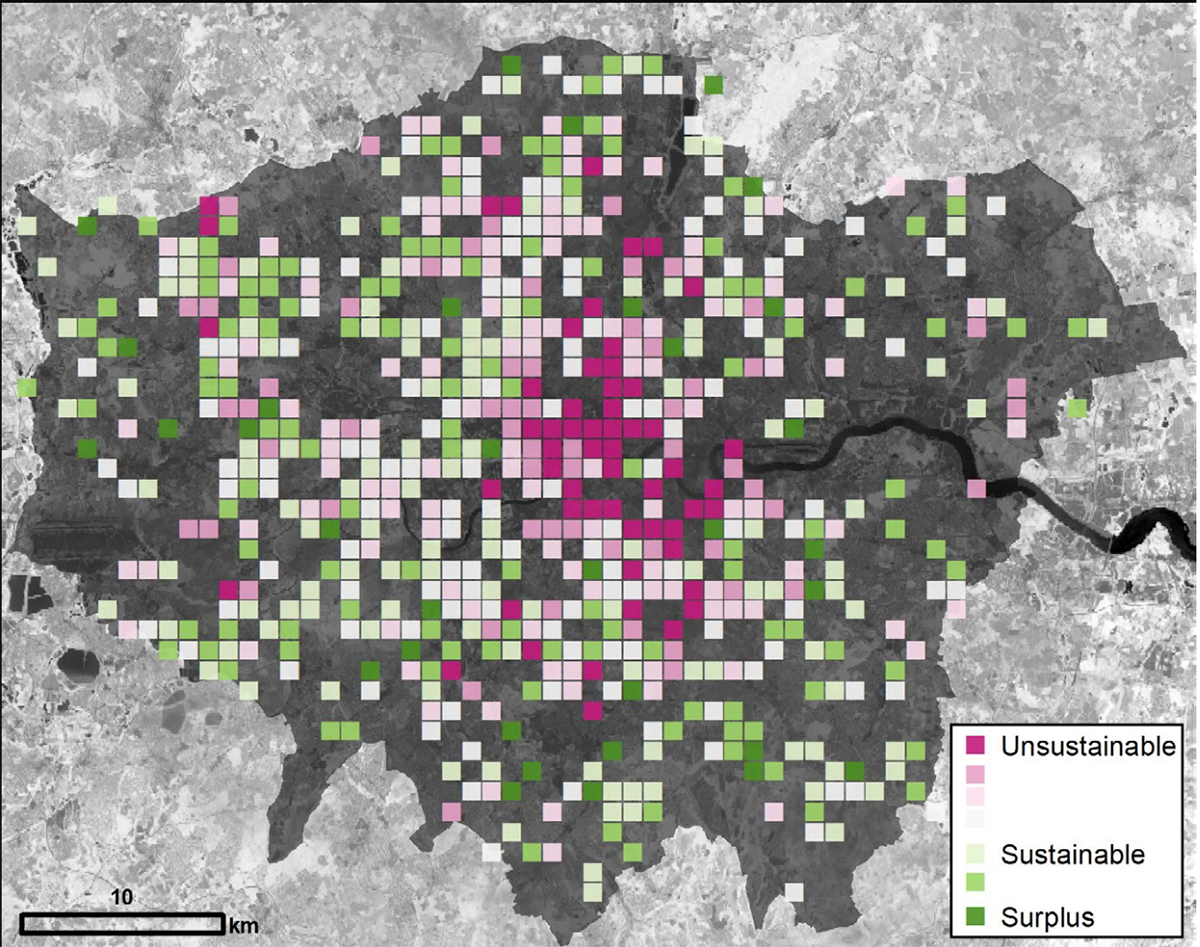Insects play crucial roles for UK food security, including pollination and pest or weed control. However, there has been increasing published evidence of insect declines in the UK and globally over the past decade, with significant implications for food security.
 As part of a parliamentary inquiry into insect decline and UK food security, NRI’s Prof Phil Stevenson told MPs that honeybee keeping in urban landscapes, especially London, is unsustainable in most locations and imposing severe competition on wild insects. This is in turn negatively affecting biodiversity and other important pollinator insects. Prof Stevenson was invited by the Science, Innovation and Technology Committee (SITC) cross-party group of MPs to present evidence at the session on Insect decline and UK food security on 7 June 2023. Stevenson, Professor of Plant Chemistry at NRI, has a long track record studying pollinators and natural enemies in the UK and overseas.
As part of a parliamentary inquiry into insect decline and UK food security, NRI’s Prof Phil Stevenson told MPs that honeybee keeping in urban landscapes, especially London, is unsustainable in most locations and imposing severe competition on wild insects. This is in turn negatively affecting biodiversity and other important pollinator insects. Prof Stevenson was invited by the Science, Innovation and Technology Committee (SITC) cross-party group of MPs to present evidence at the session on Insect decline and UK food security on 7 June 2023. Stevenson, Professor of Plant Chemistry at NRI, has a long track record studying pollinators and natural enemies in the UK and overseas.
Despite increasing evidence of insect decline, Stevenson noted that the data is nuanced, often requiring a closer look. ‘There are species that appear to be doing better in some of these surveys but on balance more are doing worse than are doing better. And it may be that the greatest stress is on species that are more specialist in their feeding behaviour,’ he said. This phenomenon is particularly pronounced in bees. Evidence of the harmful effects of honeybee keeping was published in a study by Stevenson and colleagues in 2020. In the paper, they argue that bee conservation efforts are often focused on the western honeybee, neglecting wild bee species, which are also critical pollinators and often more important than honeybees.
This has been because of the misconception that keeping honeybees has an environmental benefit and conserves biodiversity. But this is not the case as honeybees are not in decline, are not at risk and are primarily domestic animals. The paper has been the subject of media attention including ClimateCast with Tom Heap on Sky News and recent articles in the Observer, Sky News and The Telegraph, increasingly raising awareness about the problem of honeybee keeping, and its impact on other insect species, especially in cities. ‘Conserving honeybees has become a sort of flagship activity for conservation when actually it does nothing of the sort and we have got good data from London alone where the enthusiasm for bee keeping is now impacting on the available resources for other species,’ Stevenson told the MPs. He likened honeybee keeping for biodiversity conservation to raising chickens as a response to save birds.
Increasing evidence supports this assessment of honeybee keeping as unsustainable, with data showing that areas with high numbers of hives are depleted of floral resources and populations of wild insects are reduced. Some evidence points to similar impacts even in seminatural and agricultural landscapes. Honeybees are often thought to be the most important pollinator in food production, but this is not the case. ‘Many wild bee species pollinate our important crops and are often more efficient at doing this. That is why we now increasingly use commercial bumblebees in protected and controlled environments and horticulture and rely more on solitary bees for fruit tree and pollination services’, Stevenson explained.
There are also concerns that pest species may be rising, with negative impacts on crop yields. There are thought to be up to 100 insect pest species of major global importance. However, despite their enormous impact on agriculture, this is a tiny fraction of the more than one million species of insects that have been described so far. The Royal Society of Entomology estimates as many as 10 million insect species are undescribed. Thus, most insects are not pests, and many are beneficial, providing key ecosystem services. Some are detritivores, deriving their food from dead organic matter and thus helping to recycle nutrients in the soil. Others are pollinators, pest regulators and food for many vertebrates.
The cross-party committee of MPs spent the day listening to experts in insect science, trying to understand the challenge of insect decline. They also brainstormed approaches to mitigate this to ensure that the beneficial services of insects for food production in the UK are maximised in future. As vice chair of the all-party Parliamentary group on bees and pollinators, Stevenson will continue to present this message to Parliament via Barry Gardner, MP, and other MPs on the All-Party Parliamentary Groups. He has also written and submitted additional evidence to the committee for their consideration.
Learn more:
Parliamentary inquiry on insect decline and UK food security


